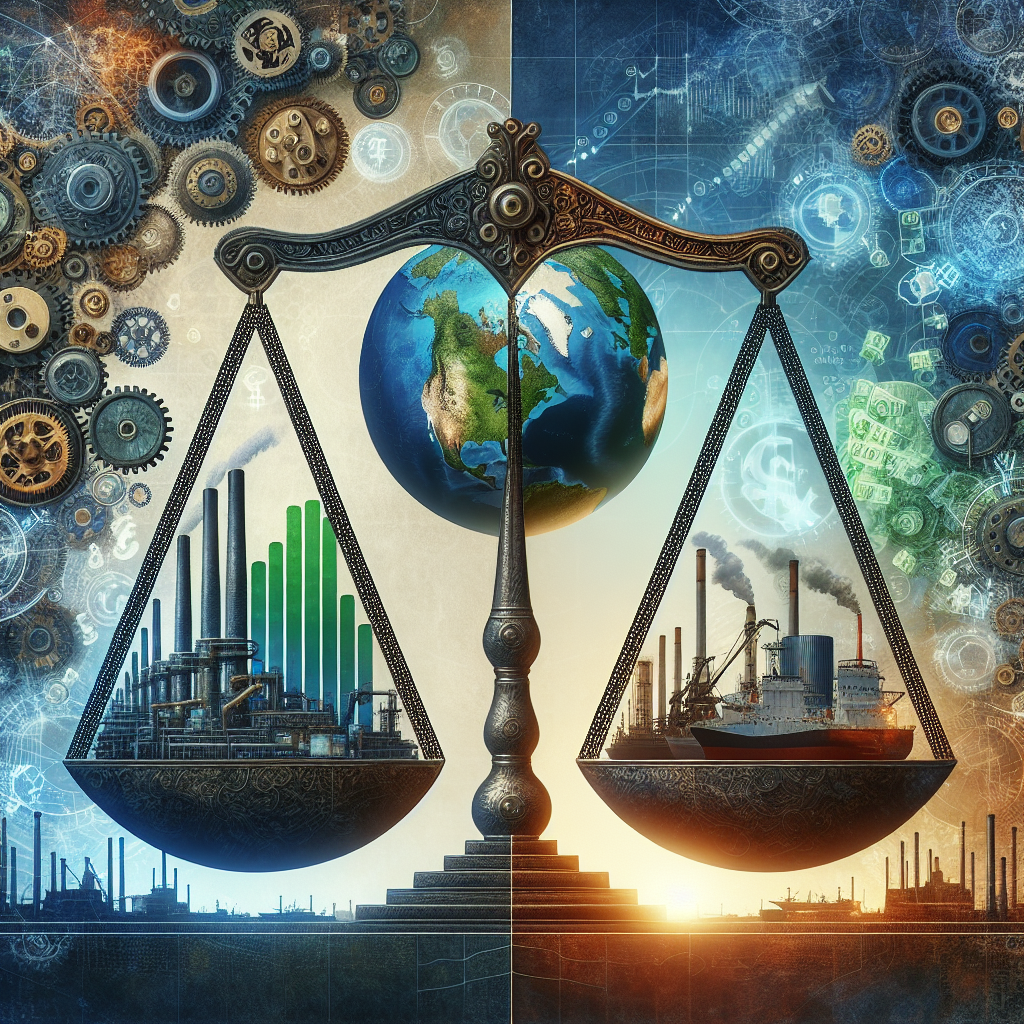Domestic vs. Foreign Policy: How They Shape America’s Future
In the dynamic landscape of global politics, the way a nation crafts its policies can significantly influence its trajectory both at home and abroad. For the United States, understanding the interplay between domestic and foreign policy is crucial as it navigates the complexities of the 21st century. This blog post delves into how these two realms of policy not only coexist but also shape America’s future.
The Core of Domestic Policy
Domestic policy refers to the decisions, laws, and programs formulated by the government to address issues within the country. These policies cover a broad spectrum, including healthcare, education, economic growth, infrastructure, and social welfare. The primary aim is to improve the quality of life for citizens and ensure a stable, prosperous nation.

For instance, healthcare reform has been a critical aspect of U.S. domestic policy. The introduction of the Affordable Care Act (ACA) aimed to extend healthcare coverage to millions of uninsured Americans, highlighting the government’s role in promoting public welfare. Similarly, educational policies that focus on enhancing student outcomes and addressing disparities ensure a well-equipped workforce for the future.
The Influence of Foreign Policy
Foreign policy, on the other hand, involves how a country interacts with other nations to achieve its national objectives. It encompasses diplomacy, military engagement, trade agreements, and international aid. The United States, as a global powerhouse, leverages its foreign policy to maintain its influence, ensure national security, and promote global stability.

Trade agreements such as the United States-Mexico-Canada Agreement (USMCA) directly impact domestic economies by creating jobs and opening markets for American products. Moreover, diplomatic efforts in conflict resolution not only foster international peace but also prevent security threats from escalating to the U.S. soil.
The Interconnection Between Domestic and Foreign Policy
The line between domestic and foreign policy is often blurred, as decisions in one sphere can have significant repercussions in the other. For example, a robust economy strengthens the nation’s position on the global stage, while international trade policies can directly affect domestic job markets and pricing structures. This interconnectedness means that policymakers must consider the global impact of domestic decisions and vice versa.
Climate change is a prime illustration of this interconnection. Domestic policies aimed at reducing carbon emissions align with international commitments under agreements like the Paris Accord. By addressing climate change domestically, the U.S. sets a precedent for global environmental initiatives and reinforces its leadership role in tackling this global crisis.
Challenges and Opportunities
Balancing domestic and foreign policy poses significant challenges. Policymakers must address domestic needs without compromising international standing. Economic constraints, political polarization, and public opinion often influence policy directions. However, these challenges also present opportunities for innovation and leadership.
For example, the advancement of technology and the digital economy offers pathways for the U.S. to lead in global markets while also ensuring domestic economic growth. Similarly, addressing social issues such as inequality and healthcare through innovative policies can strengthen the nation’s moral authority on the world stage.
Conclusion
Domestic and foreign policies are pivotal in shaping America’s future. They are not isolated spheres but rather intertwined components that influence the country’s prosperity, security, and global influence. As the world becomes increasingly interconnected, understanding and strategically crafting these policies will be essential for the United States to navigate its future effectively.
Frequently Asked Questions
What is the primary difference between domestic and foreign policy?
Domestic policy deals with issues and policies within a country’s borders, focusing on improving the lives of citizens through healthcare, education, and infrastructure. Foreign policy, however, involves a country’s interactions with other nations to achieve national objectives such as security, trade, and global influence.
How do domestic policies affect foreign relations?
Domestic policies, such as economic strength and social stability, can significantly impact a nation’s foreign relations. A strong domestic base enhances a country’s bargaining power and credibility on the international stage, while domestic instability can hamper foreign policy effectiveness.
Can foreign policy decisions impact domestic issues?
Yes, foreign policy decisions can have direct domestic impacts. For instance, trade agreements can create or eliminate jobs within the country, and international conflicts can affect national security and economic stability. Therefore, policymakers must consider both domestic and international implications when crafting policies.
How do domestic and foreign policies contribute to America’s global leadership?
By aligning domestic policies with global challenges, such as climate change and economic development, the U.S. can demonstrate leadership and innovation. Effective foreign policies that promote peace, security, and trade further enhance America’s influence and leadership on the global stage.






Leave a Reply
You must be logged in to post a comment.